Working with Lawyers: 9 Learnings for Startup Founders
When starting a company, founders often run into the question "Should I consult a lawyer for this?" In this article, I share my experience from working with lawyers, from incorporation to product counsel to fighting a law suit, from five years as an entrepreneur.
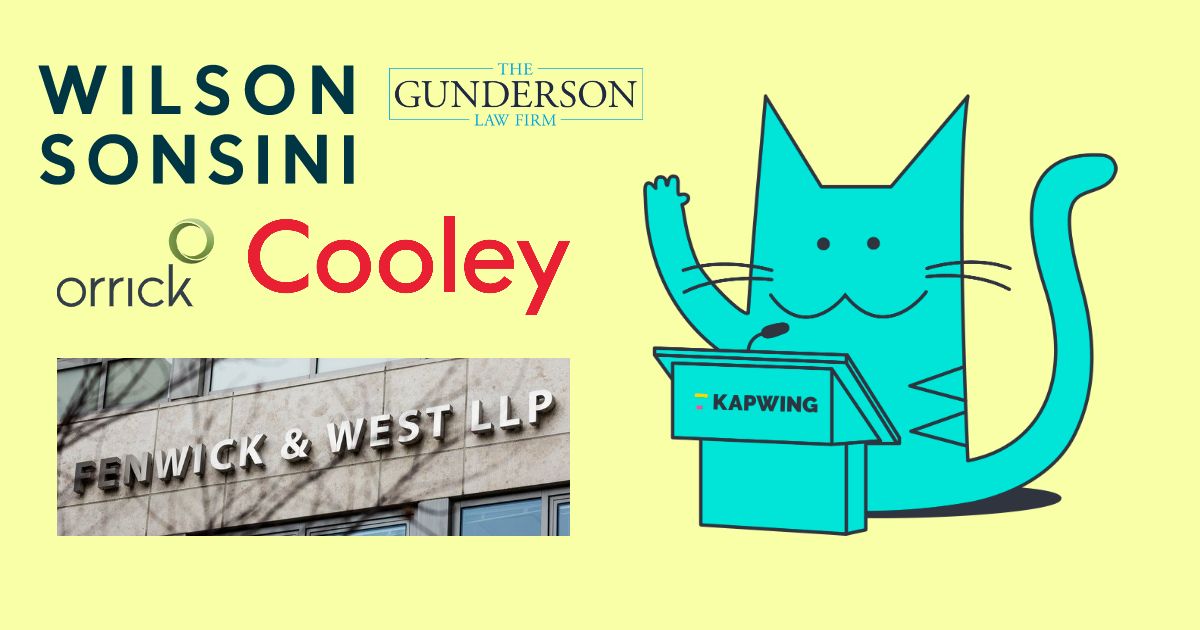
The startup fraud genre has become a meme over the last two years. But if you’re a startup founder yourself, watching these exposes is sometimes scary because it highlights how a series of small mistakes can snowball into disaster.
Lawyers can give you peace of mind, assuring you that you’ve covered your bases and that you’re running a clean business. But, at the same time, lawyers are freaking expensive. When cash-strapped entrepreneurs face a legal issue like patents, incorporation, equity, contracts, etc, there’s often a question of if it’s worth it to consult a lawyer or not. Many of these questions arise in the earliest stages when you need to be funneling capital into product development and marketing.
I’ve been a startup founder for five years now and have faced many of these questions myself. In this article, I wanted to share my learnings about working with lawyers: mistakes we made, things we got right, and how reality differed from my expectations. I hope that sharing my experience helps other entrepreneurs gain perspective on how much they should spend on legal advice when they’re getting started and growing a young business.
How Much Have We Spent on Legal
Although our startup has a simple, self-serve subscription model and little legal complexity, we’ve spent more than $200k on legal costs in aggregate over the last four years. Below is a breakdown of how much we’ve spent per year.
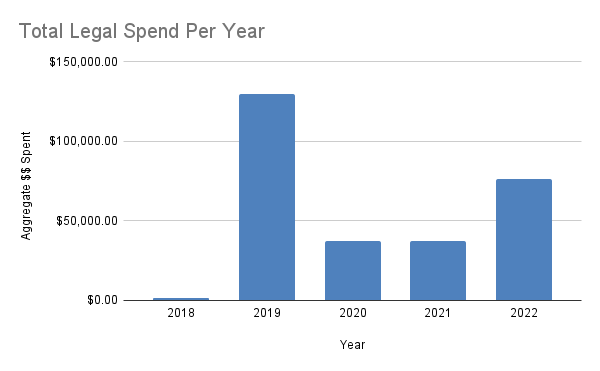
Timeline: My cofounder and I incorporated our startup, Kapwing, in April of 2018. That summer, we raised a seed round from a group of investors including KPCB and hired six employees. In 2019, with our business booming, we raised a Series A.
That Series A financing cost us almost $100,000 in legal costs. I know — GULP. See mistakes, below.
Since the Series A, we’ve worked with an experienced, expensive law firm - Fenwick & West - as Kapwing’s general counsel. They advise on board meetings, financing and M&A, contracts, consulting agreements, governance, partnerships, cap table management and governance, terms of service, hiring and firing, and more.
In 2020, someone sued Kapwing, so I got some experience handling legal proceedings. Fenwick recommended that we work with a more specialized, less expensive law firm because the case was straightforward but could last a while. They were right; the employment lawsuit dragged on for 18 months.
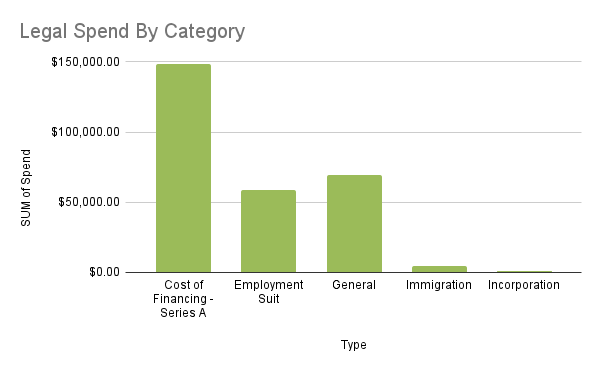
Learnings
Below are my set of learnings from working with lawyers over the last five years. Note that I am not a lawyer; this article is just one entrepreneur’s experience, so please consult a real lawyer if you want to get real legal advice. I realize there are many ways to handle these issues and do not claim that my decisions are “right.”
Incorporation Should be Almost Free
In the first two years of running our company, we spent almost nothing. Since we were bootstrapping at the time, we incorporated the company through Stripe Atlas and hired an inexpensive local lawyer to help us with basic contract review, IP agreements, and equity arrangements. We filed our own trademark and copyright application. When we raised $1.7M in seed money, we downloaded the standard no-discount SAFE from the YC website. We used the standard contracts offered in Gusto to hire our first few employees and contractors. Our first privacy policy and Terms of Service (TOS) was a direct copy of the text from Medium, a similar publishing website, with the company names switched out.

In my opinion, these were good decisions. We didn’t get sued. After all, when you’re just starting out, it makes little sense for someone to sue you as you don’t have much cash. As a result, legal liability was low on our list of problems compared to finding product-market fit. As Eric used to say, “getting sued is our 12th biggest problem” and “if we’re getting sued, we’ve probably made it anyway.”
Eventually, we did get sued, but only after we raised 8 figures and started working with a fancy tech law firm. And it turns out that real-time consultation and the “flawless” employment contracts didn’t make a big difference or help us much in the lawsuit. The lawsuit was baseless, but we still had to fight it, costing us tens of thousands of dollars. More on this later…
Write Down Your Founders Agreement
When we decided that we were going to try to fundraise, Eric and I realized that we needed to formalize our equity agreement. So, we searched for “Founders Agreement” on Google, filled out the template, and signed it. Later on, when working with Fenwick, this simple Google Doc became a crucial part of the Series A due diligence. Our lawyers rewrote it after we discussed it many times, and CRV’s lawyers scrutinized it.
For us, this was a non-issue as Eric and I didn’t have any disputes as cofounders. But many startups end with a cofounder breakup, and I’d advice every early-stage entrepreneur to put time and energy into the details of their founders agreement. In the early stages of a startup, these negotiations feel overly formal, but if you need it, you’re going to be grateful that you invested the diligence ahead of time.
File Your Own Trademark
I filed our first trademark myself, and it took about a day of work. Recently, when we rebranded, our office manager filled out the paperwork for a trademark. It’s not that hard, although you do need to pay attention to the details.
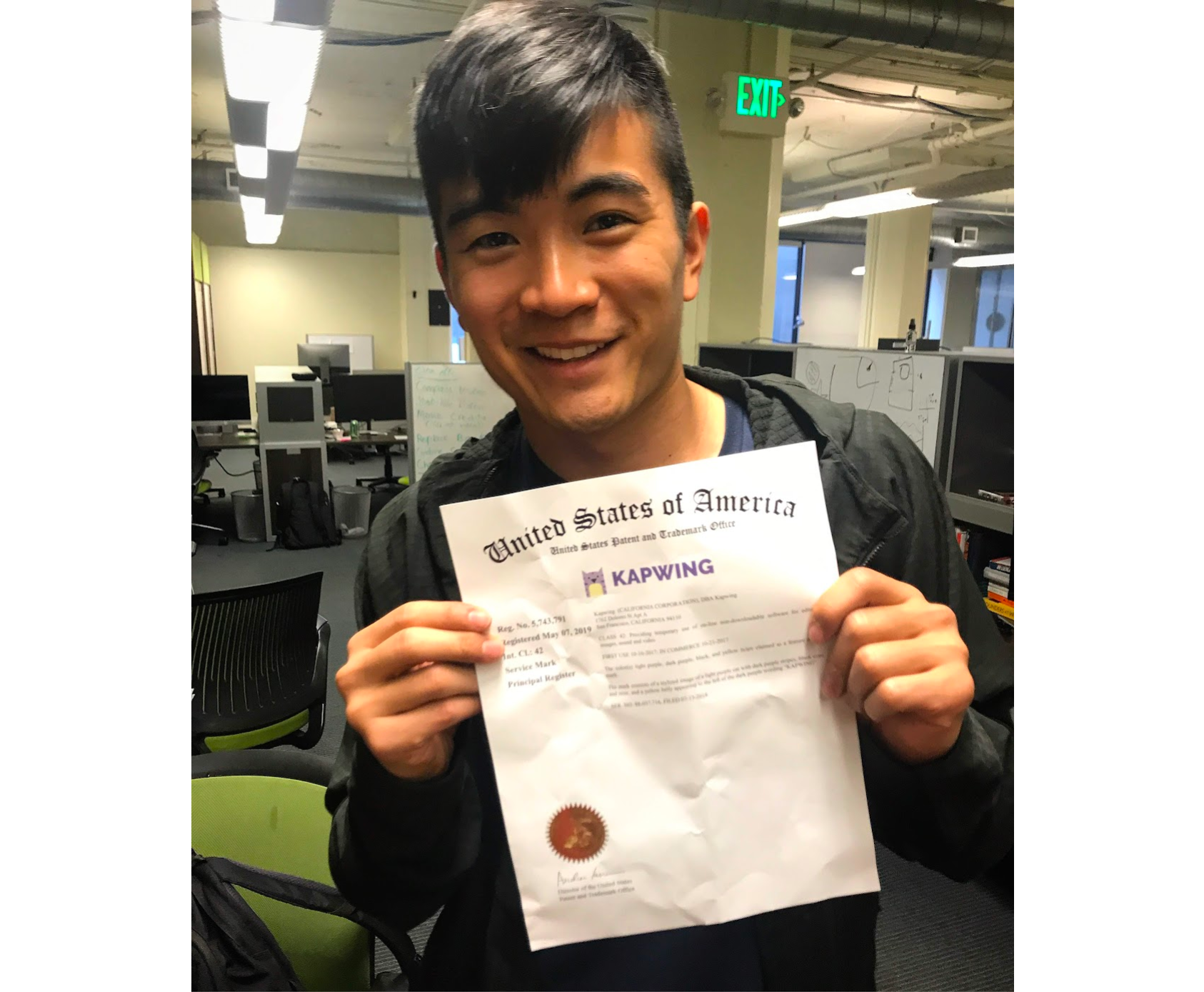
How Do You Pick Which Law Firm to Work With?
I asked my investors for intros to startup law firms and met with partners at each firms. I ended up meeting with Fenwick & West, Wilson Sonsini, and Cooley. I made my decision based on which of the lawyers felt the most trustworthy and which seemed that they would least waste my time. I’m generally frugal and wanted to find a firm that would respect our constrains.
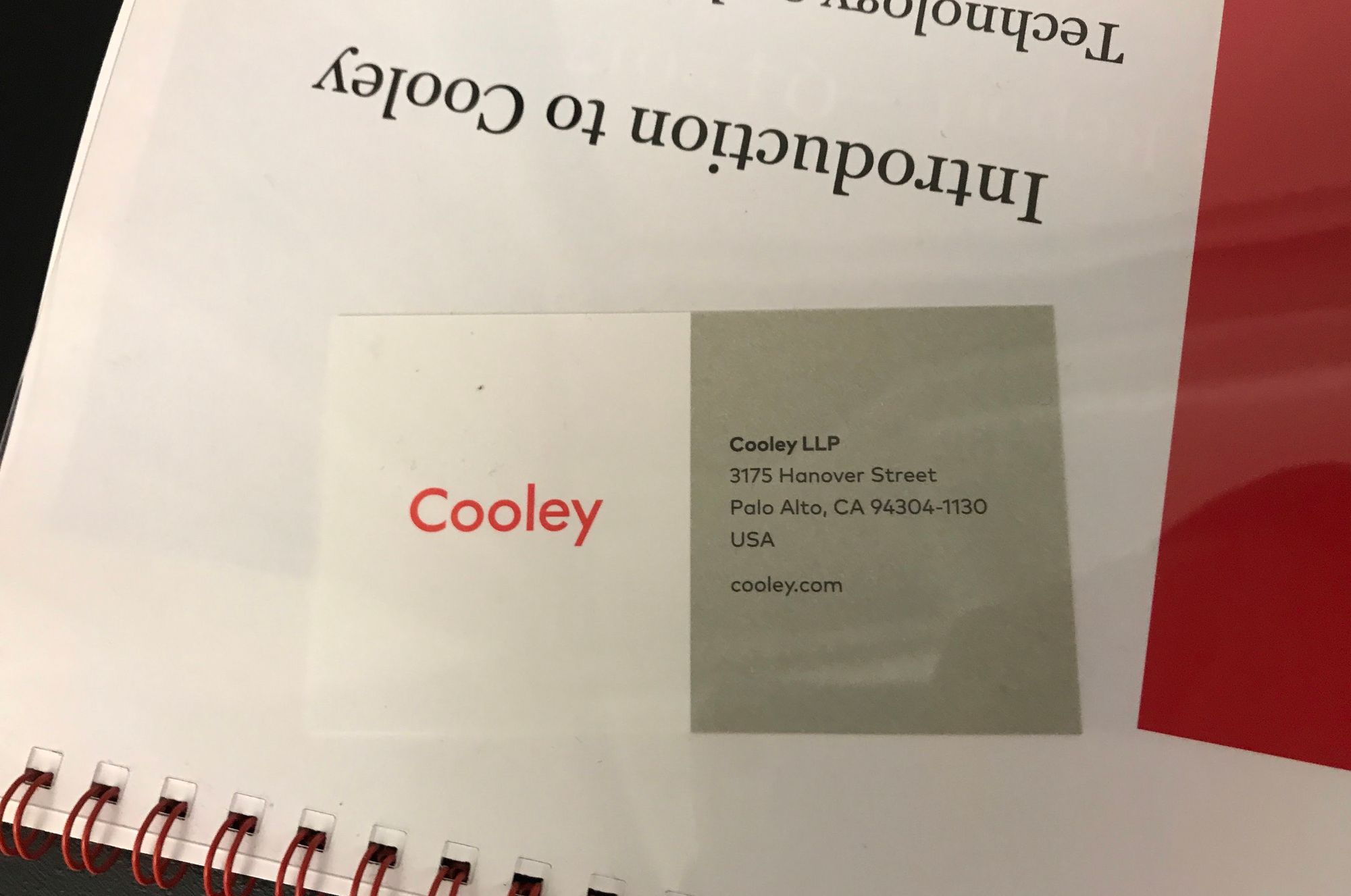
Fenwick’s Samuel Angus, the partner who ended up selling me, was a good listener and seemed like a good person with similar values. The partner we met with at Cooley was (frankly) ridiculous. He scheduled a two-hour lunch where he bragged about the firm and asked almost nothing about Kapwing. The lunch went over time despite me hinting that I needed to go and was quite busy. I wasn’t impressed with the Wilson Sonsini partner either.
So we went with Fenwick.
Is an Experienced Law Firm Worth the Cost?
Is it worth it to work with a big expensive law firm? Probably, once you’ve raised money or are making millions in revenue.
The first lawyer we worked with at the seed stage mostly worked for local businesses: book stores, ecommerce, restaurants. She was smart, adaptable, and efficient, and I trusted her to review and summarize complicated agreements. Her firm did a great job reviewing our office lease, early employment contracts, our IP agreement, service agreements, etc.
When we got our Series A term sheet, I reviewed it with her, then also reviewed it with Sam at Fenwick. With a long roster of similar deals to draw from on both sides of the table, Sam quickly highlighted the relevant terms, explaining what was standard, what was exceptional, and what we should negotiate. His advice was timely and specific to Silicon Valley tech startups. In contrast, our first lawyer had no similar experience to draw on. She couldn’t tell us what was “good” compared to other similar companies and wasn’t a great negotiating partner as a result.
Since then, we’ve reviewed multiple term sheets, partnership agreements, and acquisition offers with Sam, and he’s brought the same broad knowledge of the market and current conditions to his advice. For almost all other issues, we work with the legal associates on Sam’s team, but fundraising and M&A are worth paying top dollar for, in my opinion.
In retrospect, there were a couple of places where our seed stage lawyer’s advice turned out weirdly. For example, it’s pretty important to make sure every contractor you work with signs an IP Agreement, and this wasn’t something that our lawyer emphasized. She also set up equity in a weird way for our early employees. But it was easy to undo these things when we started working with Fenwick at the Series A.
Scrutinize your Early Legal Invoices
Lawyers optimize for low liability. Because they bill per minute, they get paid more if they take longer, meaning they have an incentive to do more work than needed. As a result, law firms will always find work to do for you and will not cut corners. This can be very expensive for you, and it does not prevent you from getting sued. My advice to founders is to make it clear to the partners that you work with that you’re frugal. Review your first law firm invoice in detail so that your lawyers remember not to overbill.
Can You Google It Instead?
In my experience, lawyers have trouble de-familiarizing themselves from legal jargon and explaining things to uninformed audiences. We’ve consistently experienced that it’s easier to do our own research on legal topics than it is to ask a lawyer to clarify. If something seems very simple, it probably is.
Should you sponsor H1(B) visas?
Most American founders know that as soon as you put up a job posting, applications will start coming in – but often qualified applicants need visa sponsorship. Although we hated turning away those qualified candidates for legal reasons, we made the decision not to sponsor new immigration visas because of the lottery system and the arduous timeline.
Eventually, we met a senior UX designer candidate who had a FAANG-sponored visa already and needed us to transfer that sponsorship, and we decided to do it. The whole arrangement cost us about $6000 in total while working with an attorney specializing in immigration and a lot of time + attention to detail. But we got through it. In the end, $6k is small compared to the impact of a high-performing designer.
Most entrepreneurs I've talked to about this topic have a similar policy to ours. However, the founders that do go through the process of filing H1Bs - like Cliff at Speechify – do differentiate themselves in a competitive labor market.
Take Care with Terminations
Before I fired someone for the first time, I talked to my lawyers, business school professors, other entrepreneurs, and some investors. I had rehearsed it and written out what I was going to say. I’d pre-drafted the email that I would send confirming the termination and had each person sign a separation agreement. In other words, I took great care to make sure I fired someone with compassion, clarity, and completeness. Sure enough, we have not yet been sued by an ex-employee.
Beware that if you've parted ways with a former employee for any reason, you should be careful about what you say in reference calls for that employee. What you say in a reference call can later be evidence for discrimination or defamation. When we acted on information we got in a reference call and decided not to move forward with a job offer, the candidate sued us and her previous employer.

What Happens When You Get Sued?
Since raising our Series A, we’ve been sued once. Context: The plaintiff was a candidate we considered hiring. We decided not to move forward with a job offer after doing a reference call, and the candidate sued us for breach of contract – and her previous employer for defamation.
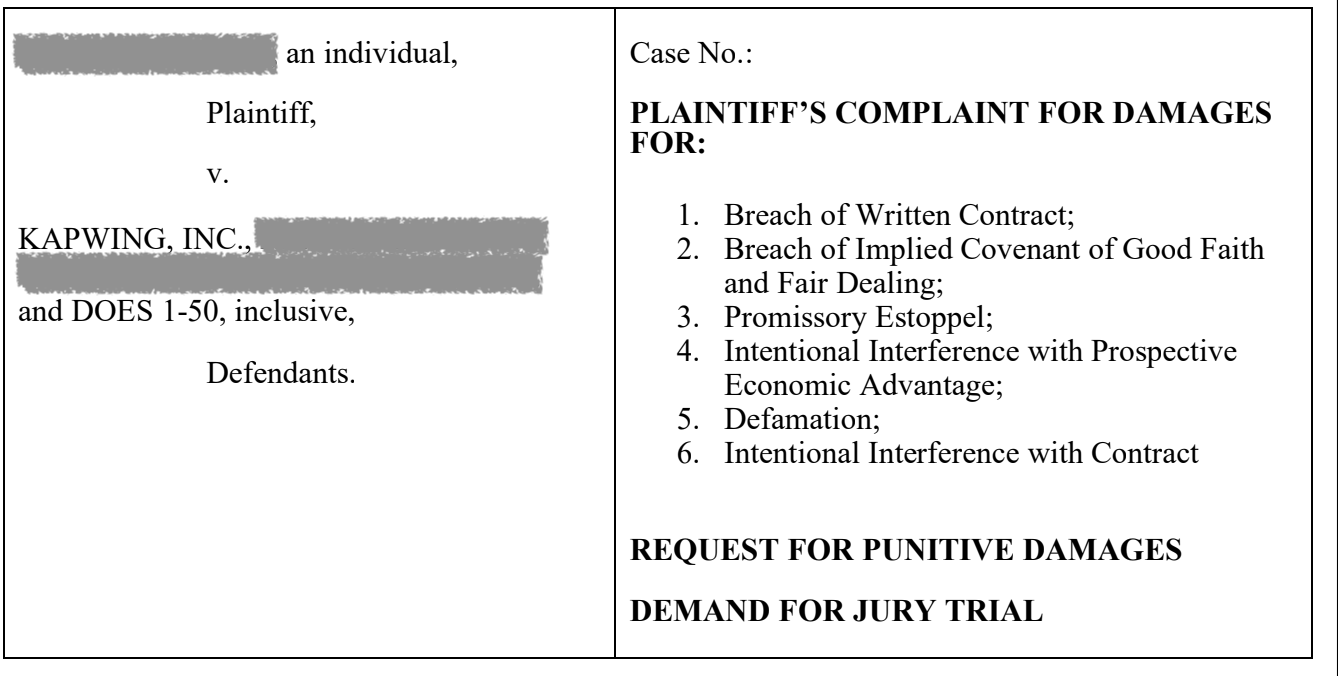
In my opinion, the lawsuit was unfounded. Regardless, we tried to settle but the plaintiff wouldn’t listen to or accept our offers, so we were forced to move towards trial. Thankfully, a judge agreed that the case had no basis and threw out the suit, but it cost us $30,000 in lawyer fees regardless.
One thing I learned is that when you win a law suit, the other side pays your “legal fees,” meaning the offical court filing fees. For us, this was a fraction of the lawyer fees required to settle the suit. tl;dr — There’s no such thing as winning if you get sued.
Nonetheless, if you've been sued recently, rest assured that you will survive, albeit with emptier pockets. I shielded my team from the process, found a lawyer, went through the paperwork and discovery, reviewed evidence, and did the deposition. All-in-all, I appreciated the learning experience in a relatively low-stakes environment.
Conclusion
One of our cultural pillars at our startup is “Done is better than perfect.” Not so, for lawyers. Every company must find the right balance of risk, speed, and cost, but slow-moving law firms are almost certainly slower and more careful than innovative startups.
At Kapwing, we’ve been relatively frugal, but we’ve also spent more in recent years to review areas like our privacy policy, contractor agreements, leases and employee handbook where we once cut corners. This approach helped us keep costs down when we had nothing and gradually reduce risk as we got more funding.









